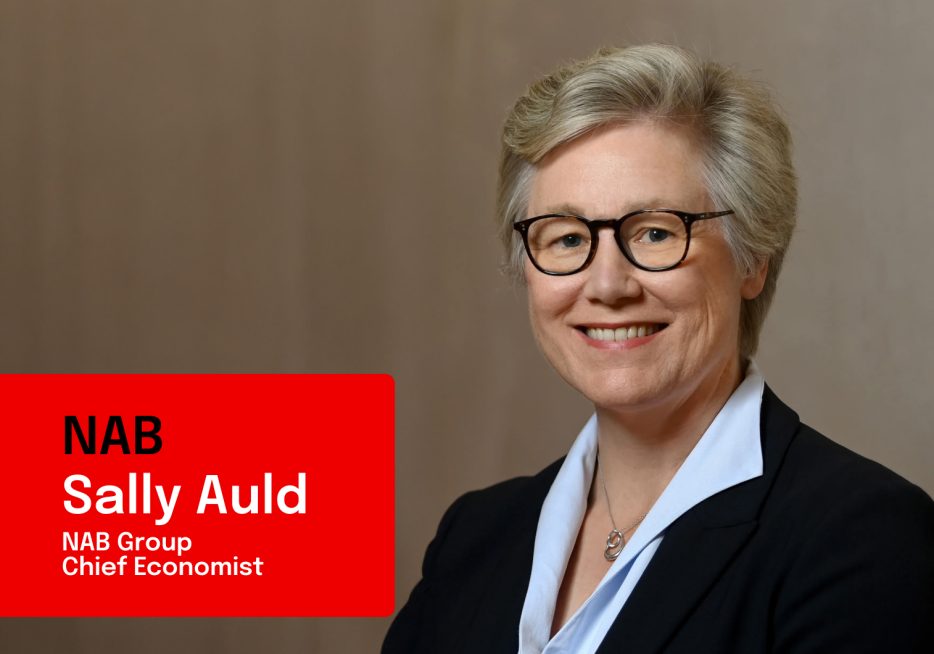We hear from NAB Group Chief Economist, as she shares her latest economic update. Watch now.


In an era when consumers are constantly bombarded with advertising messages in myriad forms, the challenge for businesses is how to break through the marketing ‘noise’ and create measurable, lead-generating opportunities.

Generating positive word-of-mouth can be an effective and cheap way to grow your business. We share some steps for implementing referral marketing in your business.
In an era when consumers are constantly bombarded with advertising messages in myriad forms, the challenge for businesses is how to break through the marketing ‘noise’ and create measurable, lead-generating opportunities.
Establishing an effective referral marketing strategy is not something that comes in a box, it’s a whole-of-business approach that in some cases requires a significant cultural shift. Central to generating leads through referrals is an unwavering focus on the customer.
For Non Executive Management Pty Ltd (nem), referrals are the cornerstone of the business. nem, a non-conventional business advisory firm, has established a brand exclusively through referrals, setting it apart from other sales-focused companies.
“There’s been quite a lot of research done on hard selling and people are more resistant to hard selling than ever before,” says Ian Freeman, Partner at nem. “People don’t want to be sold to by someone they don’t know, don’t respect and don’t trust. Conversely, people are always willing to accept a trusted referral and will be exponentially more likely to act on it.”
The key steps to building lead-generating referrals are:
Find out who your business’s biggest advocates are and why, and replicate the triggers that generate the positive endorsement (eg. outstanding customer service, unexpected added value, and so on).
Using online and offline channels where it suits best. You can keep track of potential referral partners with a CRM database or even simple lists. The important thing is to understand that personal relationships are different to strictly business relationships. Personal relationships lead to referrals on the basis that you are a good/clever/capable person. Business relationships lead to referrals on the basis that you run a good business. The size of the business you’re conducting with either type is largely irrelevant. A Net Promoter Score (NPS), a metric tool that can be used to score the level of loyalty of an organisation’s customers, can be used with business relationships but not with personal relationships.
When you’re comfortable with the fact that you’re providing the ‘wow’ factor to a business relationship, simply ask for referrals and you may be surprised with the positive response. In contrast, when you’re sufficiently comfortable with a personal relationship to ask for a referral, it’s better to ask if your contact knows anyone who might benefit from having a chat with you about your product or service.
Analyse the return on investment and continue to focus on the activities that generate the highest number of positive referrals. “The business of referral marketing is having someone else make the initial breakthrough for you,” says Freeman. “The essential component to consider is how you can add value to the customer to generate that referral. It’s a principle that can apply universally. “The first consideration is to look at the business you’re in and think to yourself, ‘what can I do to please my customers more?’ This is the reverse of the conventional business wisdom that says ‘how can I generate more money through selling?’”
In today’s hyper-connected social media world, positive word-of-mouth referrals can be extremely effective in building brands. However, the social media environment demands authenticity and there must be genuine value on offer in order for the referral to gain mass momentum. Tools like LinkedIn, Facebook and Twitter enable an unprecedented level of word-of-mouth activity but there’s also the danger of negative feedback.
“Overwhelmingly, we find that most referred leads turn into business,” says Freeman. “If you look at how you can make your customers the happiest they can be, you’re creating a unique selling point in that they’ll actually be happy to pass on a referral.
“That’s a lot cheaper than advertising and a lot more powerful.”
More from NAB:
© National Australia Bank Limited. ABN 12 004 044 937 AFSL and Australian Credit Licence 230686.